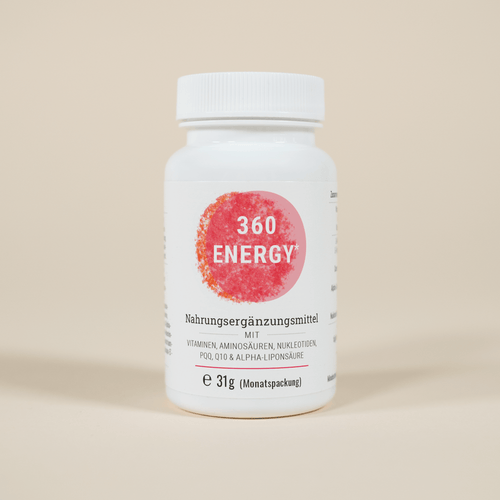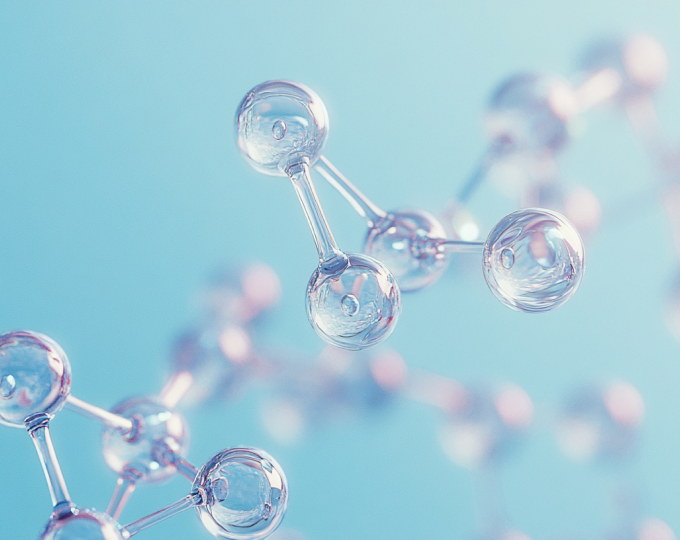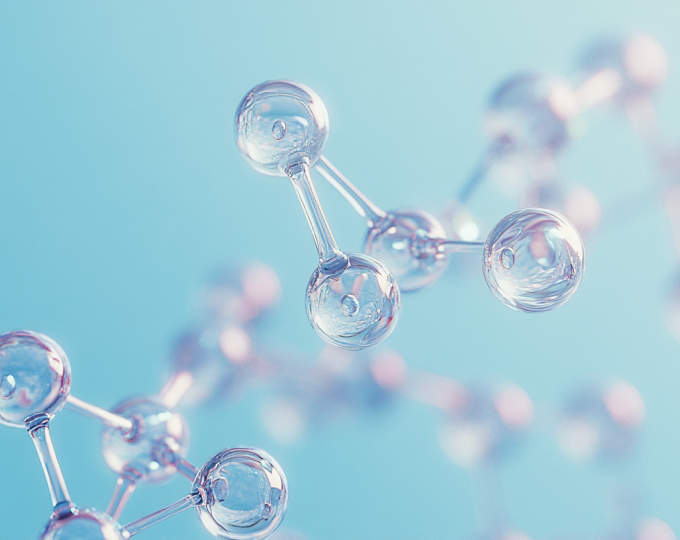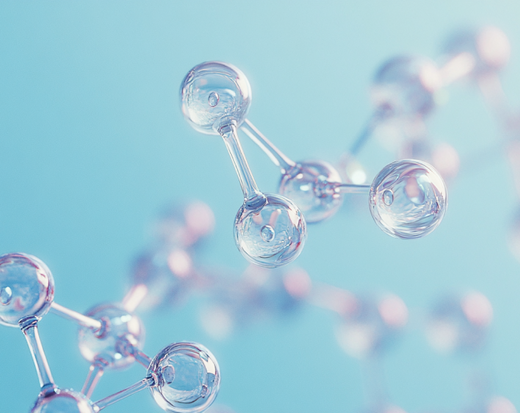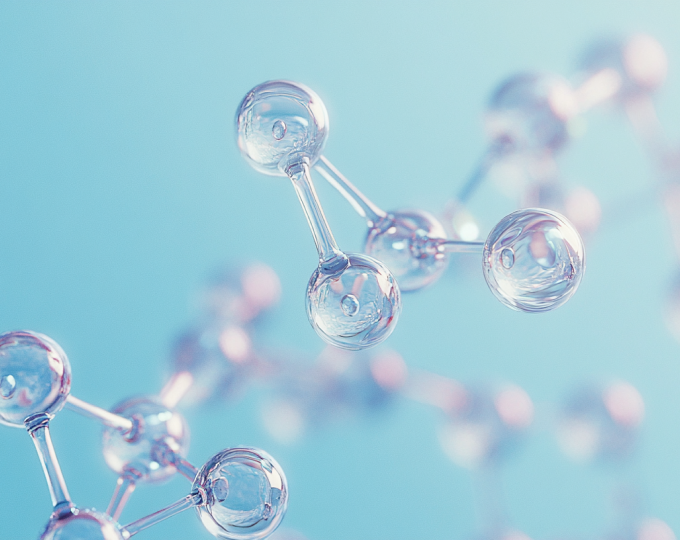Themen dieses Blogartikels:
What is Taurine?
Taurine is a naturally occurring chemical compound in the body. It is produced in the liver and brain by the breakdown of the amino acids cysteine and methionine.¹ It is an organic acid with one sulphonic acid and one amino group. The exact name for this substance is therefore 2-aminoethanesulfonic acid. Good to know: Taurine is sometimes counted as an amino acid, but this is not entirely correct. Taurine is an aminosulfonic acid that contains a sulfonic acid group instead of the carboxyl group typical of amino acids.²
What are the functions of Taurine?
This organic acid is found, for example, in the heart, brain, retina, white blood cells and muscles. Taurine performs numerous important tasks in your body. For example, it is involved in the formation of bile acid and thus in the digestion of fat, it promotes liver detoxification and stabilizes the cell membrane. Taurine also has antioxidant properties, i.e. it can render aggressive oxygen compounds harmless.³ Taurine is also involved in the growth of brain cells and the processes of nerve cells. One study even showed that taurine can protect nerves from chemical stress and repair damaged brain cells.⁴ You may be familiar with taurine as an ingredient in energy drinks. It is added there to enhance the stimulating effect of caffeine.⁵
What makes Taurine unique?
The concentration of taurine in the bodies of animals and humans decreases with increasing age. However, researchers have recently made an exciting discovery: mice that were fed taurine lived on average around ten percent longer than their counterparts that were not given taurine. In addition, the rodents fed with taurine developed typical age-related diseases later. It could therefore be that the substance has a positive influence on longevity. However, it is not yet clear whether the study results from the animal experiments can be transferred to humans.⁶
How much Taurine do you need per day?
Your body can produce sufficient amounts of this amino acid-like substance itself. It is therefore not vital for healthy adults to ingest taurine through food - although this chemical compound is contained in numerous animal foods. The body produces up to 125 milligrams of taurine per day. The content in the body of a healthy adult is up to one gram of taurine per kilogram of body weight.⁷ The situation is somewhat different for babies: Their liver function is not yet fully mature, which is why their bodies cannot produce taurine themselves. They absorb this organic acid through their mother's milk or substitute food.⁸
When do you need Taurine most?
In medicine, taurine is primarily used for parenteral nutrition - i.e. nutrient infusions that enter the bloodstream directly. Infusions containing taurine are primarily given to infants whose bodies are not yet able to produce this substance themselves. They need taurine for the formation of the retina and nerve cells.⁹ In addition, a study has shown that taurine can have an anti-inflammatory and antiatherogenic effect (i.e. it prevents the development of atherosclerosis). It could therefore be helpful for people with heart failure.¹⁰ As a dietary supplement, taurine is also valued by athletes who hope it will improve their performance - although this has not yet been clearly proven.¹¹
How does an Taurine deficiency develop and how does it manifest itself?
As the body can normally produce enough taurine, a deficiency is extremely rare. Even vegans, who do not consume this organic acid through animal foods, produce sufficient taurine in most cases. Newborn babies, whose organism is not yet capable of doing so, are an exception. Furthermore, a genetic defect and insufficient availability of the starting materials methionine or cysteine can lead to the body not producing enough taurine. Possible consequences are a weakened immune system, retinal degeneration and, in children, growth disorders.¹²
What happens if there is an overdose of Taurine?
According to a recommendation by the European Food Safety Authority (EFSA), you should consume a maximum of 100 milligrams of taurine per kilogram of body weight per day.¹³ Overdosing can lead to health problems such as stomach burns. Children may also experience drowsiness.¹⁴
Which foods are particularly high in Taurine?
Taurine is found almost exclusively in animal foods such as mussels, crab, lamb, poultry and tuna. Only traces of it are found in plant-based products.
This dictionary entry is based on carefully researched sources:
Bibliography & Sources
- netdoktor.de/medicines/taurin/
- chemie.de/lexikon/Taurin.html
- deisterapotheke.de/gesundheitsbibliothek/index/taurin/
- klinik-st-georg.de/taurin-hoffnung-bei-neurological-diseases/
- infranken.de/ratgeber/gesundheit/ernaehrung/taurin-in-energy-drinks-was-steckt- aktuell-hinter-der-zutat-art-5586234
- tagesschau.de/wissen/gesundheit/taurin-100.html
- gesundheit.de/ernaehrung/naehrstoffe/taurin-id215671/
- netdoktor.de/medicines/taurin/
- deisterapotheke.de/gesundheitsbibliothek/index/taurin/
- zentrum-der-gesundheit.de/ernaehrung/futterrgaenzung/weitere-futterrgaenzsmittel/taurin
- verbraucherzentrale.de/wissen/lebensmittel/bedarfsergaenzmittel/futterergaenzmittel-beim-sport-mit-pillen-als-erster-durch-das-ziel-13317
- onmeda.de/ernaehrung/naehrstoffe/taurin-id215726/
- onmeda.de/ernaehrung/naehrstoffe/taurin-id215726/
- netdoktor.de/medicines/taurin/



